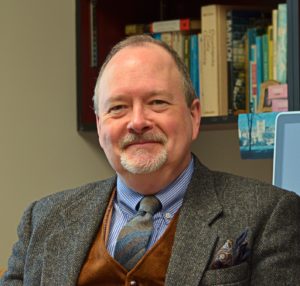
Why Are You Here?
The last century or so has brought us three typical conceptions of Christian mission. Evangelicalism and certain strands of Roman Catholicism have emphasized personal evangelism: saving souls. Their exemplar might be evangelist D. L. Moody, who famously claimed, “I look on the world as a wrecked vessel. God has given me a lifeboat and said to me, ‘Moody, save all you can.’”
Liberal Christianity, both Protestant and Catholic, has taken up another form of gospel service and tried to save society by restructuring it, with special attention to issues of class/wealth, race/ethnicity, and sex/gender. The religious right in various countries, and especially in the United States, since the 1980s has brought the spiritual and the social back together, but in a decidedly patchy agenda of saving souls (and not whole persons) while saving society in narrow terms of sexual morality without attending critically to other social dimensions, whether capitalism’s excesses, globalization’s dark sides, or nationalism, consumerism, and other blights on the social landscape—let alone literal blights on the literal landscape of ecological degradation. Indeed, some of those problematic issues have been recently rendered unproblematic for many Americans in the quest to make their country great in a very particular way.
Finally, of course, there is the perennial view of “mission” that is all too evident in all too many pews and pulpits—namely, that God’s mission is to provide for one’s constant and ever-increasing happiness. Whether it’s Paula White or Joel Osteen or Marianne Williamson, it’s all about your best life now.
Kingdom of God
The sovereign Lord, however, aims much higher and broader than any of these blinkered concerns. God intends to rescue, revolutionize, and renew all of creation, and bring it to maturity in global shalom. Jesus came preaching, yes, but he came preaching the Kingdom of God (Mk. 1:14), and everything he did and said demonstrated huge, even planet-wide, Kingdom values. His miracles were signs, pointing to the truth about God and what God intends for the whole world. Jesus also attended weddings and dinner parties, blessed little children and old people, prayed alone and taught others to pray, rebuked errant disciples and warned vicious enemies, cherished friends and honored his mother—and all of these actions also demonstrated God’s way for us in the world.
Those Kingdom values help us refine the Reformation doctrine of vocation that moved Christianity out of the two-tiered system of super-Christians (monks, friars, priests, nuns) and ordinary Christians (everybody else) to validate all living. God is concerned not only with our explicitly religious activities and with our jobs, but with our relationships, our leisure, our art, and our inner lives. God loves us as whole persons, not just as Christians or workers, and God demands that we spend every moment of every day under divine supervision and equipped with divine supply.
Kingdom values, furthermore, help us go beyond this general validation of all legitimate pursuits to compel us to choose the best among extant choices. Given that a range of options in a given case can seem legitimate, we are not supposed to simply pick our favorite, but ask: What will do the most for the Kingdom? What job will make the most of my gifts, make the most impact, and make the most shalom? What leisure activity will bring the most creativity, recreation, joy, playfulness, or rest—whatever is most important at that time? What relationships, among the many I do have or might have, should be cultivated, and in what directions—and what relationships should perhaps be pruned back or dropped altogether?
To be sure, we hardly want to promote a religious mania that consciously asks for God’s explicit will every moment we make a decision. God has provided us with experience, tradition, Scripture, scholarship and art; with community wisdom and friendly advice; and with conscience and prudence he expects us to exercise. In most cases, we don’t have to pray to ask God to tell us to avoid certain options and select others. We should instead pray simply for the moral strength to do what we know we ought to do. Normally, as W. H. Auden puts it, “We can only / do what it seems to us we were made for, look at / this world with a happy eye, / but from a sober perspective.” We seek first the Kingdom of God. In whatever we say or do, we do all in the name of the Lord Jesus. Click To Tweet
God-honoring
Most of us, however, don’t incline toward compulsive praying. Instead, we tend toward practical atheism, toward acting as if we believe God does not exist. So we should cultivate the regular asking of the question, “What is the best way to honor God and advance the Kingdom in what I am doing and what I plan to do next?” The next time I am choosing a movie, the next time I am choosing a date, the next time I am choosing a book, the next time I am choosing a job, this question ought to be asked. For if it is not asked, and asked frequently, then I will in fact be making my choices according to other values by default.
What about Jesus’ command to make disciples? What about the importance of worship, and the church, and family life? What about ethically murky situations in which it seems we must select the best of only bad options? These are all good questions to answer in due course, and ethicists have written whole books to help us answer them. (So have I, not incidentally.)
We start, however, here. We begin with the first commandment given to us in Scripture: to subdue the wonderful, wild world God created and gave us to garden. We seek first the Kingdom of God. In whatever we say or do, we do all in the name of the Lord Jesus. We present our whole lives, body and soul, as living sacrifices to the God who gave us all and wants to bless it all.
It all matters. It all matters to God. So if someone ever were to ask you, “What are you doing for the Kingdom?” you might well reply with any of the following:
- I’m mowing the lawn.
- I’m washing the dishes.
- I’m making a puzzle with my three-year-old.
- I’m paying the bills.
- I’m composing a poem.
- I’m talking with my mother on the phone.
- I’m teaching a neighbor child how to throw a ball.
- I’m writing the mayor.
- I’m preaching.
Everything. Everywhere. Everyone. Every moment. That is the scope of God’s call on our lives, and that is the dignity our lives enjoy.
*Editor’s note: This article is adapted from John G. Stackhouse, Jr., Why You’re Here: Ethics for the Real World.

